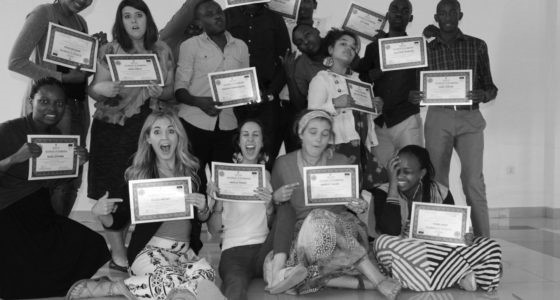Never Again Rwanda (NAR), under its bi-annual two-week Peace-Building Institute (PBI), is training Rwandan and international university students and young professionals on peace-building in post-conflict societies.
The training, which opened Friday, is conducted under the theme, “What Rwanda can teach the world?” and is expected to empower young people with skills to prevent and overcome violence and ethnic divides.
The youth are called on to understand the issue of fighting genocide by raising awareness about its reality as a human rights issue worldwide.
NAR believes that participants will be able to bridge the gap between them and institutions, and fill a critical gap of unmet needs.
At the opening, Florence Batoni, the Never Again Rwanda’s peace-building coordinator said the training covers genocide history, prevention, causes, consequences and stages of genocide in the international perspectives with case studies of where ethnic killings have occurred.
“We also look at prevention mechanisms in particular with the Genocide against the Tutsi, and the recovery process. We draw students from outside Rwanda so that they can understand our history, how genocide occurred and they can witness because they visit Genocide memorial sites to see the reality of the genocide in Rwanda. This is because most people outside there do not understand the reality of it,” Batoni said.
She said they need the students to be able to monitor genocidal tendencies and languages and be empowered in conflicts analysis and resolution.
It is also a platform for Rwandan youth to create connection with students from abroad so that they can build a network of global leaders with empowered skills in conflict analysis and prevention.
Batoni added that within the transitional justice course, they bring different mechanisms that were applied by some countries in conflicts resolution, and show participants how Rwanda applied Gacaca, and how the reconciliation between perpetrators and survivors became possible.
Participants speak out
Imani Grace Lewis-Norelle, a student from Earlham College in the US, said she has learnt the history of the Genocide against the Tutsi and different mechanism used to unite the country.
Laurence Sande, a student at University of Rwanda’s College of Education, said the bad history Rwanda experienced motivates him to work to sustain peace in Rwandan society.
He said he would apply the acquired knowledge in society he lives especially in school clubs.
Never Again Rwanda says it is pushing to include Somali and Sudanese participants as they have a lot to learn from the Rwandan situation and that might contribute to their countries’ recovery process.
By: JOHN MBARA
PUBLISHED: June 13, 2016 on www.newtimes.co.rw


